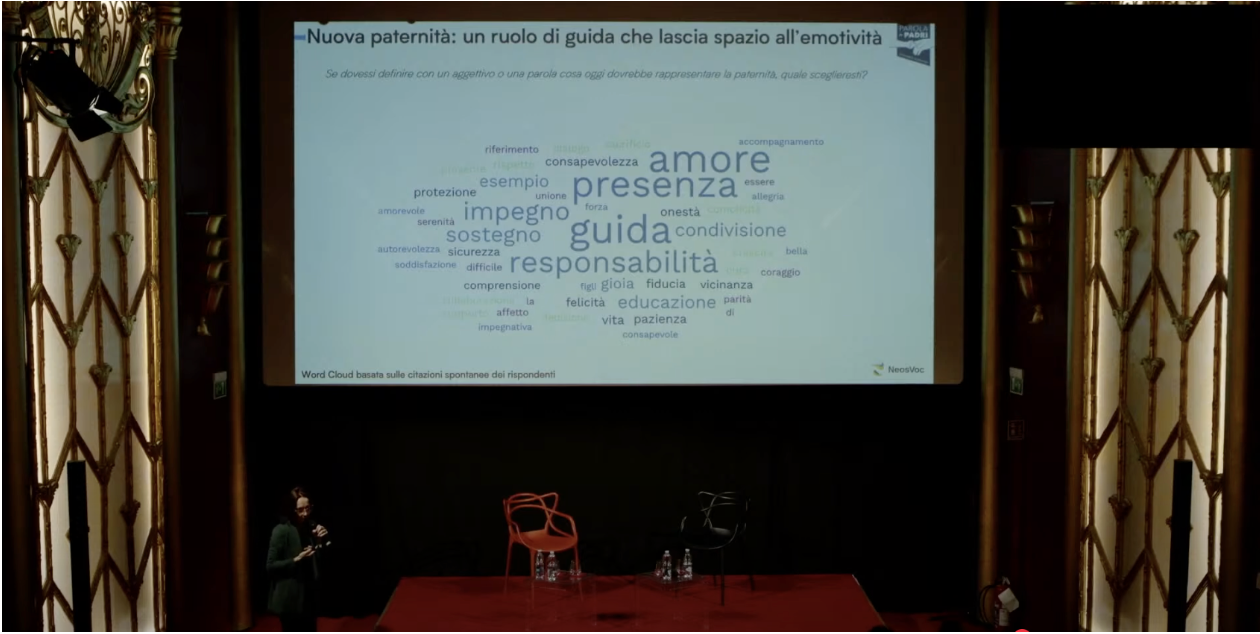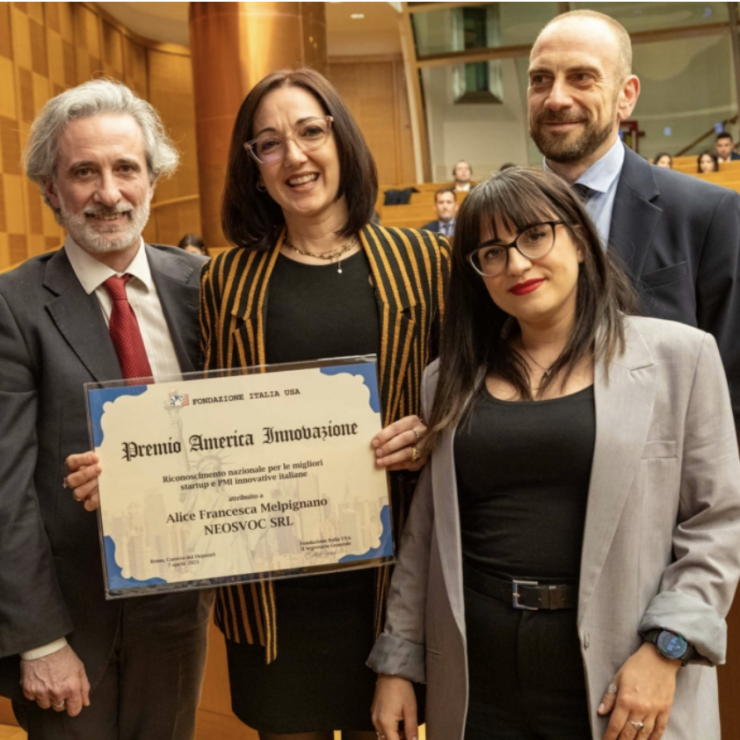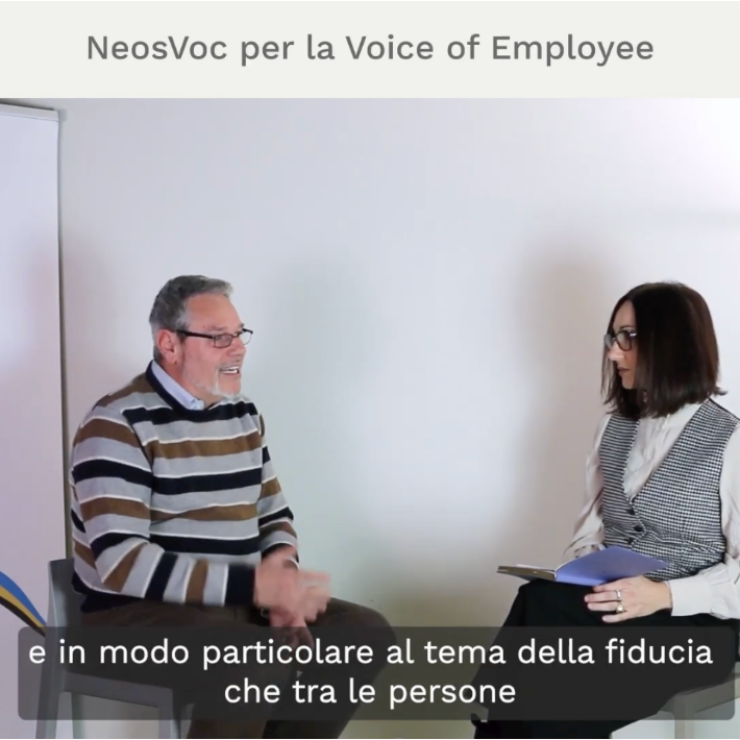On April 5, 2025, the event “Parola ai Padri” was held at Cinema Fulgor in Rimini—an encounter dedicated to exploring the challenges and opportunities of contemporary fatherhood. Organized by Carlo Crudele, the event created a space for open and nonjudgmental discussion, featuring well-known figures such as Matteo Bussola, Daniele Novara, Luca Trapanese, Azzurra Rinaldi, and Chiara Saraceno.
During the day, Alice Melpignano presented the research “Fathers Today: Between Needs and New Awareness” conducted by Neosvoc.
What Does It Mean to Be a Father Today?
This was the central question of the study, based on 1,166 interviews (733 fathers and 433 mothers), representative by macro-region and involving parents with children aged 0 to 18. The data reveal a cultural transformation still underway, yet already marked by clear signals.
An Evolving Fatherhood
The data show a generational shift. While previous generations often associated the paternal figure with severity, absence, and authority, today’s fathers increasingly identify (and are identified) with values such as care, empathy, play, tolerance, and dialogue.
75% of fathers believe the time they spend with their children is adequate or more than adequate. However, 25% wish they could spend more time but cite work as the primary obstacle.
The Role of Daughters
One of the most compelling insights involves fathers of daughters: for them, dimensions like care, commitment, patience, and support are more pronounced than average. Some fathers explicitly say they want to better prepare their daughters for a world they still perceive as hostile toward women.
Continuity or Break with the Past?
Only 20.5% of men report replicating the educational model they received. 61% adopt it only partially, while 17% have rejected it entirely—often due to having experienced absence, coldness, or indifference during childhood.
Emerging Fatherhood Profiles
Three main types of fathers emerge from the research:
- “Continuity” Fathers (20%)
These fathers replicate a positive model they themselves received—they are children of caring, present fathers. - “Break” Fathers (17%)
These fathers reject the past and engage deeply in shared activities: cooking with their children, shopping together, spending time outside the home. - “Play” Fathers (49.5%)
They reject the label “mammo” (a term often used disparagingly to describe hands-on dads) and define their identity through play. Aged 40 to 49, they believe parenting roles should be fully interchangeable.
The “Mammo” Debate
There is also a cross-sectional group labeled “mammi” (controversial term), who:
- Are highly present in daily childcare
- Participate in parenting courses and extracurricular activities
- Share sick days and night duties with their partners
- 42.6% took parental leave along with their partner
However, 55% of fathers do not identify with the term “mammo,” and many mothers find it inadequate or misleading.
Women’s Role in the Change
Interestingly, this shift is strongly supported by women—partners and ex-partners who encourage the affective and playful roles fathers now take on. Women no longer ask for help; they ask for full presence.
A Collective, Not Just Male, Challenge
This is not just a male issue. The new fatherhood is a collective necessity. Women want to share responsibilities and mental load, and fathers are responding—when they are given space to do so.
Yet the work-family balance remains a challenge. Only 56% of fathers have taken paternity leave (nearly 60% among “mammi”). The pandemic helped: 50.3% of fathers say COVID-19 improved their relationship with their children and their household dynamics.
What’s Next?
This is a slow but deep revolution. The father figure is moving away from authoritarian roles toward a more present, caring, and emotionally engaged presence.
Policy and workplace reforms are needed: paid parental leave, flexible schedules, and practical support.
And perhaps the first step is linguistic: let’s stop calling them “mammi.” Let’s call them what they are: fathers. Because words matter. And sometimes, they spark the very changes we need.




